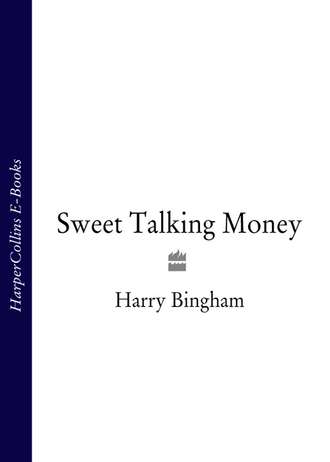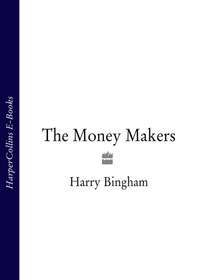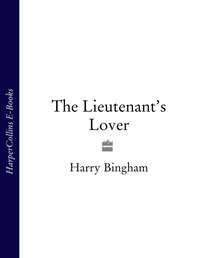
Полная версия
Sweet Talking Money
‘OK, OK, Dai, I can see the wall’s rotten, thank you. I was wondering whether you might be able to fix it up as well as knocking it down.’
Dai clambered back through the hole he’d made, meditatively ripping off another chunk of planking on his way.
‘That all depends on the load-bearing timber.’
He used a pocket knife to scrape at one of the main timbers supporting the roof. There was a layer of green slime on top, but underneath the wood was hard and good. He walked along the wall, testing the thick oak pillars. ‘Seems OK. Have you looked in the roof?’
‘Yes. The beams and roof trusses are basically fine. The rest of it’s a disaster.’
‘Ha, ha, ha, by God, Bryn, it’s a good job you didn’t get really drunk, otherwise God knows what you’d have bought. Dad’s cow barn looks a bloody palace compared.’
He laughed, but all the time his eye was assessing what needed to be done. It wasn’t long before he delivered his verdict. ‘I’d say we can clean up the main structural timbers, rip away the rest of it – that’ll be a short bloody job, and all – and just put up a new shell, tongue and groove, shiplap, whatever. Then the roof basically the same. What do you want? Cheapest would be sheets of ply with weather-proofing. ‘Course, you’d have to –’
‘Insulation.’ Kati had appeared from one of the rooms to the side of the main boathouse. She was wearing gumboots and was wadded like a doughnut in fleece-and-down jackets. Her perfect curls were stuffed away into a woolly hat and her cheeks shone pink and clear with the cold. ‘Insulation,’ she said. ‘Lots of it.’
Insulation, Bryn? I’ll use eighteen-mill tongue and groove. Can’t see you wanting insulation as well.’
Kati opened her mouth to protest, but Bryn waved her quiet. ‘My brother’s idea of a joke. We’ll stick in a ton of fibreglass.’
‘Mineral wool’s better,’ said Kati. ‘Non-carcinogenic.’
She explored the building’s timbering with her hands, trying to visualise how the insulation would work, and Bryn stepped close to her, not touching, but working alongside her, their breath forming one cloud which rose above them into the vastness of the roof. ‘Mineral wool it is,’ he said, without stepping away from her side.
‘Eh, eh, Ewan,’ said Dai. ‘We need to sort out some rooms in here. No point putting in insulation if you’ve got a thirty-foot ceiling. And what d’you want to do about the observation tower? Rip it down or fix it up?’
Bryn reluctantly left Kati’s side and continued round the derelict buildings with his brother, identifying problems, suggesting solutions. He was a good builder, Dai, and his business would have done well even if it hadn’t been the automatic choice of every Pontypridd fan within forty miles.
‘We going to use local labour, or d’you want me to bring my men?’
‘Use yours,’ said Bryn. ‘I don’t want to pay London wages if I can help it.’
‘I’ll tell that to my lads, see if they want to come.’
‘They’ll come.’
‘And they’ll have to stay somewhere.’
‘They can stay with me.’
‘I’ll try, I promise, but no guarantees.’
‘How many men d’you need!’
Dai looked around. ‘Half a dozen, plus trades. Sparky, plumber, decorator.’
Bryn pulled three wads of tickets from his pocket. ‘Six Nations rugby,’ he said. ‘England-Wales at Twickenham, Ireland-Wales at Lansdowne Road, Wales-France at the Millennium Stadium. I’m still trying to get Wales-Scotland, and the Italy game. Transport and beer thrown in as well.’
‘By damn,’ said Dai, fanning out the tickets in admiration. ‘You’re right, they’ll come. Bloody hell, Bryn, we’d even get Dad up to London for this, except he’s under the weather all the time now.’
After Dai had left, notebook crammed with notes, rugby tickets cosseted like the Crown Jewels in his breast pocket, Kati spoke to Bryn.
‘Nice guy, your brother.’
‘Salt of the earth, and just as thirsty.’
‘He called you Ewan. Why?’
‘We had a sheepdog called Ewan when we were lads. It’s just a nickname.’
Ewan was the name of a sheepdog, alright, but not just any old dog. Of all the many collies bred and trained by Bryn’s dad, Ewan was without question, beyond a doubt, and past dispute the randiest of them all. Dai had noticed Bryn’s not-so-casual closeness to Kati, and the nickname was invoked by either brother when they saw the other in pursuit of a skirt.
Kati nodded solemnly as though Bryn’s bland explanation made sense, knowing that it didn’t. Later that day, when Bryn took advantage of Cameron’s absence to take a meal alone with Kati, she laughed at his jokes, was merry and outgoing, was happy to talk about herself and her family, and showed a warm interest in Bryn and his family. But when the meal ended, she refused a ‘cup of coffee at my place’, kissed Bryn high on the cheek, and took a separate cab home to her Notting Hill flatshare.
‘Eh, eh, Ewan,’ said Bryn to himself as he watched her go, ‘never give up, boy, never give up.’
5
Starting in business is like jumping a ravine. Getting it right is terrific. Getting it nearly right is so bad, you’d better not have jumped at all.
Bryn knew that. He’d seen businesses take the run up, make the jump, lose their footing ever so slightly on take off – and then sail through the air, destined never to make the other side, destined to fall in appalled slow motion a thousand feet to the boulders and thorn bushes strewing the canyon floor.
He didn’t want to be like that. He took precautions, and one night he drew up a contract and brought it to Cameron, who was sitting in Bryn’s living-room-turned-laboratory.
‘Hey there, Money Man,’ she greeted him.
‘Hey there, Medicine Woman.’
‘Found me my money yet?’
‘Nope. Still looking. Found a cure for AIDS yet?’
‘Nope. Still looking.’
They laughed. Because he was laughing, Bryn spilled his coffee (Jamaican roast, double espresso, a hint of sugar). The coffee splurged out on to the sofa, staining the pale yellow silk. ‘Don’t worry about it,’ he said as Cameron leaped up, ready to mop it up. ‘Leave it.’
‘You don’t like the sofa? It’s kind of nice to spoil.’
‘It’s OK.’ Bryn shrugged. ‘But Cecily wants it back. As well as that,’ he said, pointing to a little Venetian chess table. ‘And that, that, that and that,’ he said, pointing to most of the other objects in the room.
‘She’s cleaning you out, huh?’
‘She’s helping herself to the contents of one pocket. The business is taking the contents of the other.’
‘So what does that leave you?’
Bryn laughed. ‘I don’t know. My trousers? Here. I’ve got a contract.’ He handed it over.
Before she took it, she held his gaze a little longer. ‘Don’t drive yourself too hard,’ she said. ‘You need to look after yourself.’
‘Don’t worry, I will. I am.’
She dropped her eyes and peered at the agreement. ‘I thought I already signed a contract.’
‘An employment contract, yes. This is an assignment of intellectual property rights. It transfers your research to the company. It’s required for insurance purposes. Doesn’t mean anything.’
‘If it doesn’t mean anything, why do it?’
‘Because it’s required for insurance purposes.’
‘I hand over everything I’ve worked on for the last five years, because some damn insurance company wants me to?’
‘Cameron, there’s no problem in signing this. I won’t stop you doing what you want with your research, absolutely anything that’s reasonable.’
‘I can still publish what I like?’
‘If you want to tell Corinth what’s going on, you can.’
‘But in principle. If I wanted, I could publish?’
Bryn shrugged. ‘If Corinth weren’t a factor, then as far as I’m concerned you could publish whatever the hell you wanted.’
Cameron peered again at the contract, hoping it would say something in plain English so she could understand it. It didn’t. Bryn had taken care to draft it that way. She shrugged and signed.
That was a mistake.
Bryn had lied.
The insurance company cared a lot about a lot of things. It cared about fire extinguisher maintenance records and whether there was going to be non-slip matting in the bathroom. The insurance company didn’t give a twopenny damn about Cameron’s research, but Bryn did. Since he had staked everything on Cameron’s genius, he’d decided he’d better make sure of her. An employment contract wouldn’t keep her from walking. Holding on to her research would.
It seemed like a minor deception. Bryn felt bad about it, but not too bad. How was he to know that everything, but everything; would one day be set at risk?
SIX
1
Five weeks later.
The boathouse now more than a third of the way towards total renovation, Dai and his men working dawn to dusk, foul timber all stripped and burned, new walls flying up, a smell of wood primer and sawdust, gathering excitement, and huge views out over the river filling their new world with light. So far, so good.
The medical side had been attended to as well. Cameron and Kati drew up a wish-list of lab equipment, expecting Bryn to argue every single item, as their old employers always had. But not a bit of it. ‘Sure this is all?’ he’d said, waving a chequebook, and now, every day, vans arrived at the boatyard, asking repeatedly if this was really the right place, and unloading crate after crate of beautiful new equipment: blood spectrometers from Germany, medical glassware from Sweden, computers from California, centrifuges from Canada, clean air filtration systems from France and Britain, and clinking bottles of chemicals from Italy, Japan, Switzerland and America. The boathouse had an old observation tower – formerly the spot from which the jolly old Fulham rowers watched the jolly old boat race – and Cameron had seized upon it as her office, and was already nine tenths of the way towards filling it with junk. So far, so good.
By now, several venture capitalists had been introduced to the emerging technology under conditions of the strictest secrecy, enforced by the fiercest confidentiality agreement Bryn had ever drawn up. Two of the finance houses were still thinking, the third – Malcolm Milne’s – had come back with a strong positive response and an offer of funding on excellent terms. So far, so excellent.
Buoyed up by the signs of success, Bryn had incorporated the company, drawn up articles of association, registered for VAT, opened accounts and done all of the hundred other things that a young company needs. They were now officially Fulham Research Ltd, described in official documents as a company ‘involved in research and development in the area of human biology’. The vaguer the better, as far as Bryn was concerned, anxious to hide from Corinth as long as he was able. But of Corinth, there was no sign at all. So far, so good.
Romantically, Bryn had been making the most of his brother’s hint and had done what he could to woo Kati. Kati liked him well enough, that much was clear, but she’d just been dumped virtually at the altar by a cheating fiancé, and she was in no hurry to get started with anyone else, least of all her boss. Bryn was disappointed, but didn’t lose hope. He took care over his appearance (as far as was possible when he had half a dozen Welsh builders sharing his bathroom) and went out of his way to be charming. He liked Kati, and wasn’t in a rush. So far, so satisfactory.
Adding to his workforce already, he brought across Meg Tillery, his former secretary, from Berger Scholes. To Bryn’s delight, Meg had taken only about half a minute to listen to his proposal before saying yes, and only about half an hour from saying yes to Leaving Berger Scholes with her personal belongings tucked into the traditional black bin-liner. So far, so good.
Of Corinth’s henchmen, there was no sign. Cameron and Kati had cautiously sounded out their parents and it had transpired that, just as Bryn had predicted, there had been a stranger snooping round their home neighbourhoods, asking for information. Since Kati and Cameron had been vague and unspecific, Corinth would have learned nothing of value. Bryn felt sure Huizinga would keep an ear to the ground, but without knowing where Cameron was, there was little more he could do. So far, so good.
But all was not well. In fact things had grown so bad, Bryn was beginning to wonder if he’d committed the worst mistake of his entire life.
2
‘Let me get this straight,’ said Bryn, clamping down hard on his voice so he didn’t actually yell. ‘I’ve found twenty million pounds’ worth of funding, and you’re telling me you don’t want it?’
‘Right.’
Muscles fought in Bryn’s jaw as he composed a reply. ‘Cameron, you do understand that we need this money? That the company relies on obtaining this money?’
‘Wrong. We need money. Not twenty million pounds, maybe only a quarter of that. But whatever the amount, we don’t need this money. Not from Milner.’
‘Milne.’
‘Whatever.’
It was late at night in the boathouse, the only time it was usable, when Dai and his lads had downed tools and were doing their worst in London’s nightspots. A couple of the smaller downstairs rooms were all but finished and Cameron had been setting them up the way she wanted: bloodwork facility, microscope workshop, computer pods, library. She was dressed in her working outfit: jeans and a T-shirt, with a labcoat flung on top, hanging from her skinny shoulders as from a broomstick scarecrow. A thick rubber band of the sort dropped on the pavement by postmen twisted her hair away out of sight. Once, as Bryn had watched, an end of hair escaped its grip once too often, and she reached for a pair of surgical scissors and snipped it off at the root. ‘Damn hair,’ she muttered.
Now, ignoring Bryn, she pulled over an unpacked shipment of dyes and solvents and began to rip away the brown packaging tape. Bryn reached for the box and tugged it from her grasp.
‘Please stop that,’ he said. ‘We need to talk.’
She looked irritated, glance wandering around the room, visibly thinking through how best to arrange her stores. ‘Now?’
‘Yes, now.’
She gazed round the room again, before grunting, ‘Uh, OK,’ figuring that the quickest way to get rid of Bryn was to hear him out. ‘Upstairs, then. I’ve left my tea.’
They walked up the spiral staircase to Cameron’s office. Windows looked out in each direction: north and east over central London, south and west over the river. ‘You’ll be a bloody princess in here,’ Dai had said as he’d finished the room, ‘all you need now is the knight in shining armour.’ The tower room did have something of the fairy-tale about it, but what Bryn thought of was ivory towers, academic scientists cut off from the real world, out of sight and out of touch. Cameron rummaged amongst her rapidly growing mounds of papers and found a long-cooled cup of camomile tea. ‘Ugh,’ she sipped it and put it down. ‘Forget that. OK. Shoot.’
‘Good.’ Bryn found a wooden storage cupboard that hadn’t yet been swamped by clutter and sat down. ‘First point, we need money, lots of it, I estimate twenty million pounds.’
‘So you keep saying. I don’t see us needing more than five.’
‘Look. Five million pounds only covers your human research phase. It gets you to where you’ve already got to with rats.’
‘Right. Which, as I recall, was a one hundred per cent cure of all viral diseases tested.’
‘Good. That’s the hard part, but not the most important part.’
‘Oh, for God’s sake. What’s this? A lecture on the profit motive? You’re confusing me with someone who gives a damn. Please get this. I – don’t – care.’
She stood up and reached for her tea, wanting to move it to a safer spot, but Bryn interrupted. He was in a fury of impatience. He was the boss, head of the company, chief executive. At Berger Scholes he’d been a Managing Director, able to snap orders at nearly anyone in the firm and have them obeyed. Yet here he was, for all his notional power, unable even to hold a conversation with his most critical employee. He leaped to his feet and, as Cameron reached for the tea, he grabbed it first and slammed it down on a window sill.
‘No,’ he snapped. ‘This is not about profits. It’s something you need to hear. Please.’
Cameron breathed out in a sigh. ‘OK. Go ahead.’
‘Good. Now, you just told me that you can cure all major viral diseases in rats.’
‘If we get ’em early. If the disease has progressed far, then –’
‘OK. If you get ’em early, a hundred per cent. Now, tell me, could I do that? Take the Schoolroom, cure your rats?’
What? You?’
‘Yes, me. Could I personally cure a rat with an early-stage viral disease?’
‘No way. Never.’
‘How about a doctor, let’s say an infectious diseases guy in a busy hospital? A nurse? A lab assistant?’
Cameron blew out through her nose and glanced unceremoniously at her watch. ‘Listen, Kati and I can cure those rats because for the last five years we’ve worked on nothing else at all. We know our rats. We know our blood. We know our viruses. We know the Schoolroom. We know –’
‘Exactly,’ said Bryn, holding up his hand. ‘Thank you. Now tell me, once you’ve finished your human work, and you and Kati are getting a close to one hundred per cent cure rate, it’s going to be the same, isn’t it?’
Cameron looked blank, unsure what he was getting at. He continued. ‘You’ve got a technique for curing people, but no one knows how to use it. By your own statement, it takes five years of training to use the Schoolroom competently, which is four years, eleven months and two weeks too long.’ Holding his hands in front of him like a conductor damping the orchestra’s sound, he said, ‘The point is your technology’s useless unless people use it. Me, a nurse, a busy doctor, a lab guy. With training, of course. A week or two. Even a month or two. But not five years, plus a medical doctorate, plus a research doctorate, plus a brain the size of a planet which everyone tells me is going to get a Nobel Prize one of these days.’
He stopped abruptly. It was an odd way to deliver a compliment. She wrinkled her mouth in embarrassed acknowledgement of the praise.
‘Uh. I see your point.’
‘Right. So five million pounds for your clinical trials. I’ve allowed eight million, because these things run over. Then another dozen or so for development. Turning the Schoolroom into a box of tricks which anyone can use, me, a nurse, a lab guy, whoever.’
‘Hence twenty million.’
‘And hence Malcolm Milne.’
Now that Bryn no longer had to force his words at his recalcitrant partner, the space between them had grown too narrow. Cameron swivelled to look out of the window, where the black Thames marched silently towards Chelsea, Westminster, and St Paul’s. London was a new city for her, a new adventure. She still didn’t know whether her escape from Boston was the smartest move she’d ever made, or the stupidest. Bryn moved back, scuffing some piles of books on the floor. Cameron glanced at her watch, then returned her gaze to Bryn. ‘OK. I get the money part. I take the point.’
‘I knew you’d –’
‘But Malcolm Milne, no way. Sorry, but no.’
3
‘I heard him,’ said Cameron patiently. ‘He was talking about exit. He was talking about selling the company.’
‘Yes, it’s how venture capital works. Milne has to sell out to repay his investors.’
‘How long before he sells?’
‘Five years, maybe seven, maybe one. It’s his call.’
‘Who’ll control the company? You, or Milne and his cronies?’
‘The Board controls the company. The shareholders appoint the Board.’
‘That’s a bullshit answer.’
‘OK. It depends how much of the business I sell. Since all we’ve got at this stage is an idea, I’ll probably have to sell seventy or eighty per cent to raise enough money. But even if I could persuade Milne to take just forty-nine per cent, he’d still require a say in all major decisions.’
‘So Milne either controls the company or he has a veto?’
‘It’s not in his interest to screw things up.’
‘His interest, huh?’ There was another, longer pause. Cameron found a rubber band on the bench beside her and pinged it out into the dark, out on to the sleeping river. ‘And when his time’s up, who does Milne sell us to?’
Bryn spread his hands at an impossible question. ‘Maybe he floats us on the stockmarket. Maybe he sells us to a company in a related business, maybe … Well, anyone, whoever offers most.’
‘Such as a drugs company scared by our technology?’
‘Cameron, he can sell us to anyone he wants. He needs to make a profit. It’s the rules of the game.’
‘The rules of the game say he can sell us to Corinth?’
Bryn shook his head. ‘Yes, that’s possible, but really –’
‘Really what? Back in Boston, you said that – what’s-his-face – Hosanna –’
‘Huizinga.’
‘– saw this as a him or us situation, a game worth one hundred billion dollars to him. Why wouldn’t he buy us? Buy us, then drop the technology? That’s a crazy risk to take.’
‘It’s a risk you won’t be able to take, without funding.’
Cameron stared out into the black night. Across the water, streetlights shone orange through a screen of winter trees while upriver, moored in a line below Hammersmith Bridge, a group of houseboats stirred slowly in the breeze, red lamps warning where their sterns jutted out into the current. Her breath misted the window.
Bryn let her think. There was no option except to take Milne’s money, none at all. She was a smart woman and she would see that, she’d have to. When she turned on her heel to answer him, he was ready for anything except what she actually said.
‘Then we have a problem, because I am not going to put my ideas into hands that I don’t trust.’
‘Milne’s OK. Don’t worry about Milne.’
‘I don’t care if he’s Mother Teresa, he’ll still sell to the highest bidder. He has to. You just told me he does.’
‘Cameron.’ Bryn’s voice was hard-edged again, hard and desperate. ‘You need to be realistic.’
‘True.’
‘You’re killing this company. This is the only way.’
She brought her face to within a few inches of his. Close up, you no longer noticed its pallor, the brusque way in which its owner treated it, all you saw were its commanding grey eyes, ablaze with intensity and passion.
‘Listen, I have a chance to develop a technology which will save lives. Potentially hundreds of thousands of lives, millions, even. The Schoolroom doesn’t have to be expensive. Peptides don’t have to be expensive. This is a medicine which can wipe out some of the nastiest diseases in not just the rich countries, but the poor ones, too.
‘You’re asking me to take a chance on Milne. Fine. If it was just me, just my career, just this company, I’d be happy to bet everything on him. But the patients? The AIDS sufferers, the hepatitis victims, all those grannies who die just because their poor old immune systems can’t cope with a simple flu bug?’ She shook her head. ‘I can’t do it, Bryn. I won’t.’
Bryn pursed his lips. He felt small for thinking the thought, but it bothered him when he heard Cameron talking about selling their technology cheaply. Not that he wanted to rip people off – not that he wanted the Third World to suffer – just … Well, after all, he was a businessman and this was his business.
He sighed. ‘I know, Cameron. I understand, believe me. But we have to face facts. We need the money.’
Cameron dropped her eyes and picked up the offer letter from Milne which had prompted the whole conversation. Tearing it into shreds and leaning far out of the window, she threw it into the river, where the white fragments began to float away, caught by the silent midnight ripples.








